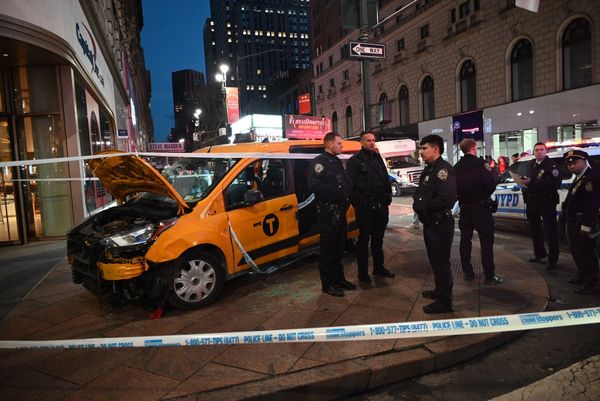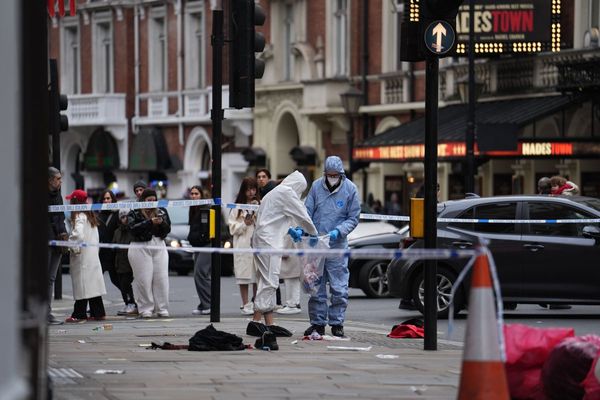
Decades ago, I was warned that the community should default to red alert when there is an outbreak of furious agreement between competing parties and politicians about how election dollars should be raised and spent.
But it’s not just that the major parties are more or less in bed together. The not-so-major parties are either lukewarm or muted in their criticisms of the legislation. This lack of criticism masks a sordid truth about the role of money in Australian politics.
The teals and the Greens are happy travellers on the big money gravy train. Let’s not forget that until Malcolm Turnbull kicked in $1.75 million of his own money to fund his own campaign in 2017, the single biggest political donation in Australian history was $1.6 million to the Greens, made by Wotif founder Graeme Wood, in the 2010 election.
The teals, backed by the big money of Climate 200 led by Simon Holmes à Court, are the new-look big spenders of Australian politics. On fundraising reform their efforts have been more token than real. The teals have been easy converts to accepting big donations while spruiking the merits of small community donations. It’s the intoxicating influence of big money — an entrenched and addictive enabler in Australian politics.
How much longer do we have to listen to sanctimonious lies from poker-faced politicians about getting big money out of politics and stopping the fundraising “arms race?”
How much more proof do we need that political donations are the great enabler of soft corruption? These are the transactions that grease the wheels of democracy and erode confidence and trust in our system of government. It’s a murky world of access and decision-making that should be stopped in its tracks.
The so-called reforms before Parliament this week are a hoax. They are a charade. The window dressing of reform perpetuates a tainted political system for those smart and cunning enough to manipulate it.
Look at some of the big money “reforms”:
- A $20,000 limit on political donations per candidate per year;
- A $600,000 cap on political donations by individuals, entities and anyone else wanting to kick in;
- An $800,000 cap on campaign spending per candidate;
- A $90 million cap on spending for political parties per election, nationally.
And we call this getting big money out of politics!
Even the Centre for Public Integrity fails to understand what constitutes big money, despite railing against it.
To top it off, the taxpayer subsidy — quaintly known as “public funding” — would increase to $5 per vote, up from $2.91 at the 2022 election, under these proposals.
What makes political parties and candidates deserving of a thumping taxpayer subsidy? Why should the unwitting taxpayer have to compulsorily grease the wheels of democracy?
What politics needs is less money and more people. It needs large numbers of Australians on the electoral roll, making small donations. We don’t want small numbers of Australians making mega donations. It’s bad for democracy.
Then there are the loopholes that have characterised changes to political fundraising and spending laws since this debate started almost 50 years ago. We are meant to accept “drafting anomalies” that have facilitated and enabled dodgy, backdoor political donations will be fixed down the track.
Really?
On the subject of loopholes, one of the most lucrative is where buying places at a fundraising event is not disclosable as a donation. In the UK it was correctly called “government to rent”. Sam Dastyari called it “pay to play”.
What about the most tacky, inappropriate and unseemly political cash-splash of all — the 2023 Voice to Parliament referendum. Changes to the constitution deserve a loftier kind of respect that should preclude big money, and permit only fundraising at a modest level by Australian citizens.
Extraordinarily, the raising and spending of money to change the Australian constitution does not rate a mention in this legislation, or other laws. What should be the most rigorous area of fundraising is a free-for-all.
In 2023 the Yes and No cases staged the ultimate fundraising “arms race”. The focus should have been the deep ethical issues that allowed what happens with constitutional change to be a fundraising orgy. Instead, we read a who’s who of corporate Australia, private companies, high-net-worth individuals and family offices and foundations.
The fact that the failed Yes fundraising out-performed the successful No fundraising by at least two to one is not the point. The point is that constitutional reform can be at the mercy of the highest bidder –even if the highest bidder, the cashed-up Yes case, fails.
There’s no defence in saying big money donors are just doing what they are entitled to do with their own money.
Leave that rationale for commercial investment, buying a house or betting at the races. Like mugs, the voters have been led up the garden path by the players across the political spectrum. Pushed by the major parties, the political class has made changes to the way money is raised and spent in politics, to look like genuine reforms. They are not.
A largely unquestioning and often lazy media has failed to shine a light in this dark corner to reveal the truth about political fundraising. What Australia needs are meaningful reforms that govern how money in politics is raised and spent.
Let’s start with:
- Restricting donations to individuals on the electoral roll;
- Banning all entities — including public and private companies and trade unions — from making political donations;
- Capping donations at $200 per person, per election, per jurisdiction;
- Introducing meaningful penalties, including custodial penalties, to stop the “aggregating” of donations.
If just 2% of the 17.5 million Australians eligible to vote donated $200 the income would be $70 million.
Imagine, hundreds of thousands of Australians donating a token amount of money to the political party or candidate of their choice. Now that would be good for democracy!
This is what Australian democracy needs. What we don’t need is the self-serving hoax that is about to be played out in federal Parliament, and voted on by conflicted beneficiaries, almost all of whom are on the big-money gravy train.
Have something to say about this article? Write to us at letters@crikey.com.au. Please include your full name to be considered for publication in Crikey’s Your Say. We reserve the right to edit for length and clarity.







